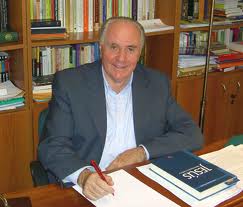The economic crisis is going to be long and difficult. We should not fool ourselves. We will not need to look elsewhere. In our more or less immediate surroundings, we will be running into families forced to live on charity, persons threatened with eviction, neighbors hit by unemployment, sick people unable to figure out how to resolve their problems regarding health or medical care. No one knows exactly how society will react. Without doubt, many will increasingly feel helpless, angry and demoralized. It is foreseeable that conflicts and delinquency will be on the rise. It is easy to be more selfish and obsessed with one’s own security.
But then it is also possible that solidarity will grow. The crisis can make us more human. It can teach us to share more what we have and do not need. There may be closer ties and mutual assistance within families. Our sensitivity to those in need may grow. We will be poorer, but we can be more human.
In the midst of crisis, our Christian communities can also grow in brotherly or sisterly love. It is the time to find out that we cannot follow Jesus and partner with him in the Father’s humanizing project without working for a society where there will be more justice and less corruption, more solidarity and less selfishness, more responsibility and less frivolity and consumerism.
It is the time to recover also the humanizing power that is contained in the Eucharist when it is lived as an experience of love that is affirmed and shared. The meeting of Christians, gathered every Sunday around Jesus, has to be turned into a place of conscientization and of strong promotion of practical solidarity.
The crisis can jolt us out of routine and mediocrity. We cannot be in communion with Christ in the depth of our heart without being in communion with suffering brothers and sisters. We cannot break bread together while we ignore the hunger of millions of human beings who are deprived of bread and justice. Our giving one another peace is a mockery if we forget those who are being socially excluded.
The celebration of the Eucharist should help us open our eyes so as to discover whom we have to defend, support and help at this time. It should awaken us from the “illusion of innocence” that lets us live tranquilly, moving and fighting only when our interests are at stake. Lived each Sunday with faith, the Eucharist can make us more human and better followers of Jesus. It can help us live the crisis with Christian lucidity, without losing dignity and hope.
José Antonio Pagola
June 2, 2013
The Body and Blood of Christ (C)
Luke 9, 11 -17
Tags: José Antonio Pagola

